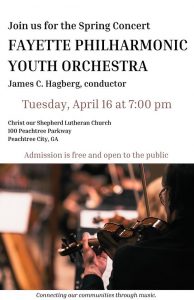A federal lawsuit has been filed in the hopes of forcing the elimination of at-large voting for seats on the Fayette County Board of Commissioners and the Fayette County Board of Education.
The action was brought by the Fayette County branch and the Georgia state conference of the National Association for the Advancement of Colored People.
The NAACP is hoping to force the commission and board of education to create new districts in which residents from that district will be limited to voting in just that district. Currently, Fayette voters are able to vote for all members of the county commission and board of education, regardless of where they live in the county.
The suit, filed at the federal courthouse in Newnan Aug. 9, claims that the current at-large voting process “has discriminatory effects on the voting strength of Fayette County’s black community” and violates section 2 of the federal Voting Rights act.
The lawsuit claims that the current at-large voting system used for the county commission and the board of education “weakens the voting strength of minority voters, and consqeuently denies those voters an opportunity to elect a candidate of their choice.”
“Blacks in Fayette County have suffered and continue to suffer discrimination, including a history of neglect by unresponsive elected officials, and bear the effects of that discrimination today,” the lawsuit claims.
The lawsuit suggests that the concentration of black persons eligible to vote is so high in the northeast portion of the county that a district could be created which would contain a majority black voting-age population. Doing so would, in theory, almost guarantee that a candidate supported by black voters would be elected to office.
The lawsuit claims that 11 individual plaintiffs listed have continually been unable to elect “candidates of their choice” to the county commission and board of education “despite the strong support and votes for those candidates from other black voters” in their community.
One of the plaintiffs is Emory Wilkerson, who ran for a county commission seat in 2006 but lost to political newcomer Robert Horgan.
Wilkerson, a Republican, in 2004 ran for the District 74 seat in the Georgia House of Representatives, but he was defeated by incumbent Roberta Abdul-Salaam.
The board of education and county commission have similar systems for determining the outcome of an election. There are slight differences, however.
The commission consists of three posts limited to three different geographic districts in the county. For those three posts, all candidates for office must live in one of those districts.
The remaining two commission posts are “at-large” districts, meaning that there is no requirement for the candidate to live in a specific district. In any case, all Fayette County voters are allowed to vote on all county commission candidates.
The board of education consists of five posts limited to five different geographic districts in the county, but just like the county commission, all BoE posts can be voted on by all Fayette County voters.
Under the district voting concept proffered by the NAACP lawsuit, voters would instead be limited to voting for only one of the five seats on both the county commission and board of education.
The lawsuit notes that no black person has ever been elected to the board of education or the county commission.
The only black person ever elected to office in Fayette County history was Magistrate Judge Charles Floyd, who won two elections after he was appointed to office in 2002, the lawsuit notes.
The suit was filed by the NAACP Legal Defense and Educational Fund, Inc., represented by East Point attorney Wayne B. Kendall.
>>>>
Here is the news release about the lawsuit from the local NAACP:
NAACP LEGAL DEFENSE FUND FILES VOTING RIGHTS ACT CHALLENGE TO
FAYETTE COUNTY, GEORGIA’S AT-LARGE ELECTION METHOD
August 9, 2011
(Fayette County, Georgia) Just days after the 46th anniversary of the Voting Rights Act, the NAACP Legal Defense and Educational Fund, Inc. (LDF) and Georgia attorney Wayne Kendall filed a federal lawsuit alleging that Fayette County, Georgia’s at-large method of electing members to the County Board of Commissioners and Board of Education violates the Act. The case was filed on behalf of the Georgia State Conference NAACP, Fayette County NAACP, and Black voters of Fayette County.
“Fayette County’s at-large election method is a structural wall of exclusion that guarantees that Black voters, in spite of having tried in election after election, cannot elect their candidates of choice,” said Ryan Haygood, Director of LDF’s Political Participation Group. “The Voting Rights Act is the best vehicle for removing that wall, and for bringing greater inclusion, fairness, and accountability to Fayette County’s political process through district-based voting.”
Although Black residents comprise twenty percent of Fayette County, are geographically concentrated in the northeastern part of the County, and consistently vote together for Board of Commissioners and Board of Education candidates, no Black candidate has ever been elected to either of these boards.
Given the absence of meaningful support of Black-preferred candidates by white voters, who comprise seventy percent of Fayette County’s population, those candidates cannot win a county-wide election under the current electoral system. For example, a Black candidate recently lost a Fayette County election after receiving nearly unanimous support (99 percent) from Black voters, but securing only 15 percent from White voters.
“The goal of this case is straightforward: we seek to create five equally-populated election districts in Fayette County, each of which would elect one candidate to each board,” said local counsel Wayne Kendall. “By replacing at-large voting with district voting, Black residents would constitute the majority of the voting age population in one district, and would finally be able to elect candidates of their choosing to each board.”
“This case is about fundamental fairness and accountability,” said Edward DuBose, President of the Georgia State Conference NAACP, a plaintiff in the lawsuit. “All communities in Fayette County should have the opportunity to elect candidates who are responsive to their needs.”
“For far too long, we have lacked the representation and leadership on these boards to address many of the important issues that confront us. We should have the opportunity to elect representatives to the Board of Commissioners and Board of Education to ensure that all of the voices within our community are heard. We should all be able to agree with that basic principle,” said plaintiff John E. Jones, President of the Fayette County NAACP.












Leave a Comment
You must be logged in to post a comment.